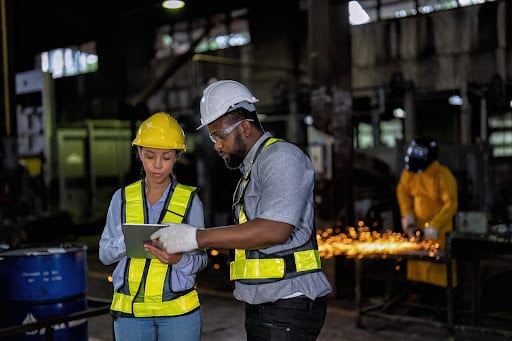Contract manufacturing offers numerous benefits. However, it also presents its fair share of challenges that must be effectively addressed to ensure smooth and successful collaborations. In this blog post, we explore some of the common challenges faced by companies engaged in contract manufacturing and discuss potential strategies to mitigate them.
8 Challenges That Contract Manufacturers Face
1. Ensuring Consistent Quality Control
Maintaining consistent quality control in contract manufacturing requires a proactive approach toward inspecting and monitoring every step of the manufacturing process. Managing costs and time effectively, as well as ensuring compliance with industry regulations, are key considerations for a contract manufacturer.
To ensure consistent quality control, contract manufacturing businesses must consider the following:
- Closely examining each aspect of production: From the sourcing of raw materials to the final inspection of finished products, you can identify and address issues that may arise. This not only ensures that your products meet the required standards but also helps avoid costly rework or recalls.
- Managing costs and time effectively: Contract manufacturing involves outsourcing certain aspects of production. While this can provide cost savings and allow businesses to focus on their core competencies, it also introduces complexities in terms of coordination and oversight. It is crucial to establish clear communication channels with contract manufacturers and regularly review their performance metrics. By doing so, you can proactively identify potential bottlenecks or delays that could impact product quality.
- Compliance with industry regulations and standards: The manufacturing industry is subject to various legal requirements pertaining to product safety, environmental sustainability, and ethical practices. It is essential for businesses to partner with contract manufacturers who prioritize compliance and uphold these standards throughout the production process.
What should I consider when selecting a contract manufacturer?
2. Managing Supply Chain Disruptions
Managing supply chain disruptions requires proactive planning and effective communication. By implementing robust supply chain management practices, diversifying the supplier base, and ensuring clear contracts with suppliers, contract manufacturers can minimize the impact of disruptions on their production capabilities.
Supply chain disruptions can occur due to various reasons such as natural disasters, political unrest, or unexpected changes in demand. These disruptions can have a significant impact on your production capabilities and ultimately affect your ability to deliver products on time.
By proactively managing your supply chain, you can identify alternative sources for critical materials and reduce the risk of delays or shortages. This not only helps maintain product quality but also allows you to achieve cost savings and reduce time to market by avoiding costly mistakes caused by inadequate supply chain management strategies.
3. Maintaining Communication with Contract Manufacturers
Maintaining good communication with contract manufacturers is crucial for successfully overcoming various challenges in contract manufacturing. From regulatory compliances to supply chain issues and overall contract management processes, open lines of communication help ensure that all parties involved are aligned towards achieving common goals efficiently.
Timely updates on inventory levels, material availability, and any potential disruptions in the supply chain are vital for avoiding delays in production goals. Through consistent communication, both parties can stay informed about any changes or challenges faced by the production facility or suppliers. This proactive approach allows for quicker problem-solving and helps keep the production process on track.
4. Preventing Counterfeiting and Intellectual Property Theft
Counterfeiting is a common challenge in contract manufacturing. Unauthorized parties may produce fake products that resemble yours and sell them as genuine. To prevent counterfeiting and protect your intellectual property, it’s crucial for you to implement robust security measures and regularly monitor your supply chain.
A well-drafted contract should clearly define the ownership of intellectual property rights and include provisions that prohibit the use of subcontractors without prior consent. It’s also essential to include compliance clauses that require your contract manufacturer to adhere to all applicable laws and regulations regarding counterfeit prevention.
Strengthening security measures and incorporating robust contractual language with proper compliance clause will go a long way in safeguarding both your business reputation and financial interests from potential losses caused by counterfeiting incidents or IP thefts along the supply chain. By taking these proactive steps in preventing counterfeiting and protecting your intellectual property rights, you can minimize risks associated with counterfeit products entering the market under your brand name.
How to protect your intellectual property when working with a contract manufacturer
5. Streamlining Processes with a Quality Management System
Efficient quality management plays a vital role in improving production processes. By implementing rigorous quality control measures throughout each stage of manufacturing, you can ensure that high-quality products are delivered consistently.
A well-implemented quality management system can help monitor stock levels closely so that orders can be placed on time without unnecessary delays while reducing the overall cost of production. This type of system requires conducting regular inspections at various checkpoints to identify any potential issues early on.
By investing in a dedicated contract management solution, you can overcome the quality control challenges faced in contract manufacturing. Simultaneously, a partnership with a top-tier contract manufacturer will streamline production processeses through rigorous quality control measures and efficient inventory management.
6. Managing Production Capacity and Lead Times
Maximizing production capacity and reducing lead times is essential for successful contract manufacturing operations. By addressing challenges such as lack of resources and lack of visibility, companies can optimize efficiency while delivering high-quality products on time.
Maximizing your production capacity and reducing lead times is crucial for optimizing efficiency and meeting customer demands. One of the major challenges in managing production capacity is ensuring that you have enough resources to meet the demand. By regularly reviewing your inventory levels and analyzing historical data, you can identify potential bottlenecks and plan accordingly to avoid delays or shortages.
Another challenge in managing production capacity is dealing with contract renewals. It’s important to have clear communication with your customers about their future needs and expectations. By understanding their demand patterns and any upcoming changes in product requirements, you can adjust your production schedule accordingly. This requires careful planning and forecasting, as well as maintaining a close relationship with the third-party manufacturer.
7. Mitigating Risks in Contract Negotiations
Mitigating risks related to production issues requires careful consideration of supply chain partners and their capabilities. Skilled labor plays a significant role in ensuring smooth production processes and timely delivery of goods. Therefore, when negotiating contracts, it’s vital to evaluate the manufacturer’s workforce expertise and assess their ability to handle potential production challenges effectively. Additionally, establishing contingency plans with clear protocols for resolving unforeseen production issues can further reduce risks associated with delays or disruptions.
One key challenge is ensuring that the contract addresses all necessary aspects to produce high-quality products. This involves clearly defining specifications, quality control measures, and performance expectations. By thoroughly discussing these details with your prospective manufacturer, you can mitigate risks associated with potential misunderstandings or miscommunication.
What are the typical costs associated with contract manufacturing?
8. Building Strong Partnerships and Collaboration
Contract manufacturing companies often have access to advanced technologies and industry knowledge that can contribute to finding novel approaches in product development and manufacturing processes. By establishing a collaborative business relationship with these companies, organizations can tap into their expertise and leverage their capabilities to drive continuous improvement and stay ahead in a competitive market.
Building strong partnerships and collaboration is key to fostering successful long-term relationships in the realm of contract manufacturing. By collaborating on formulation development and design engineering, both parties can contribute their expertise to create high-quality products that meet the desired specifications. This level of partnership allows for efficient problem-solving and streamlines the production process.
Contract Manufacturing Services
In today’s highly competitive and rapidly evolving business landscape, contract manufacturing has emerged as a strategic solution for companies across diverse industries. By outsourcing the production of their goods to specialized manufacturers, companies can focus on core competencies, reduce operational costs, and gain access to specialized expertise and resources.
Alpha Contract Manufacturing can help your company handle the entire contract manufacturing process. Thanks to our industry expertise and cutting-edge technology, we can provide you with the best strategies and production methods to guarantee the creation of high-quality goods.







